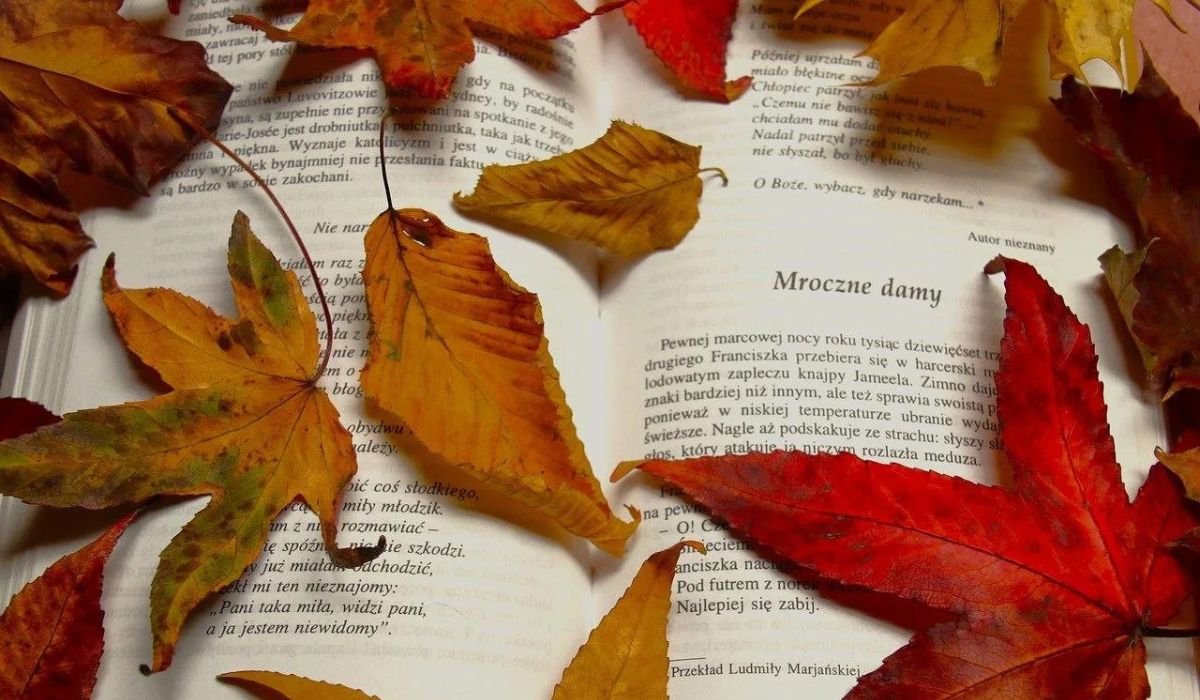Introduction to Ideas for Individual Reading Journal Non Fiction Biography
Keeping a reading journal while exploring non-fiction biographies is a powerful way to deepen understanding, enhance reflection, and create a lasting personal connection to the material. It’s not just about reading; it’s about documenting your thoughts, emotions, and insights, allowing you to fully engage with the lives of others. For readers looking to gain valuable lessons from the lives of extraordinary people, a reading journal can provide a profound way to track your evolving thoughts and uncover new insights. In this article, we will explore the benefits of keeping a reading journal for biographies, offer journaling prompts, and delve into creative ways to use journaling as a tool for growth and reflection.
The Benefits of Keeping a Reading Journal
Keeping a reading journal for non-fiction biographies offers numerous benefits. First, it enhances comprehension by encouraging deeper engagement with the material. Writing down key points, quotes, and reflections helps retain more information, enabling you to revisit and digest the subject matter later.
Second, a journal allows for critical thinking. By reflecting on the subject’s life, readers can explore broader themes such as resilience, leadership, or moral dilemmas. This process sharpens analytical skills, helping you form opinions and connect ideas across different biographies and historical contexts.
Finally, journaling offers an emotional outlet. Biographies often detail profound personal struggles and triumphs, and writing about these experiences can help readers process emotions, gain new perspectives, and apply lessons to their own lives.
Unique Insights Gained from Reflecting on Non-Fiction Biographies
A reading journal opens the door to unique insights into the lives of individuals. Non-fiction biographies are rich with real-life experiences, from personal hardships to monumental achievements. Reflecting on these experiences can help readers discover universal truths about human nature, perseverance, and the complexities of life.
For example, while reading a biography about a historical figure who overcame adversity, journaling can reveal how their resilience mirrors challenges in your own life. This reflective process fosters a deeper empathy and understanding of others, making the material more meaningful.
How a Reading Journal Can Enhance Understanding and Appreciation
Writing regularly in a journal enhances both understanding and appreciation of the biography’s subject. As you write about the character’s life events, relationships, and decisions, you begin to appreciate the complexity of their experiences. You might notice patterns, connect personal experiences to the subject’s journey, or uncover lessons that are not immediately apparent during a casual read.
Journaling also offers the opportunity to analyze the author’s perspective and writing style. By breaking down how the author presents information, you gain a deeper appreciation for the choices made in storytelling, and how these affect your perception of the subject.
Journaling Prompts and Questions
To get the most out of a reading journal, consider using a variety of prompts and questions that encourage reflection and analysis.
General Prompts for Reflecting on the Book
- What were your overall impressions of the biography?
- Which moments in the book stood out to you, and why?
- What key takeaways or lessons did you learn from the subject’s life?
- How did the biography influence your perception of the historical period or culture in which the subject lived?
Questions to Explore the Author’s Perspective and Writing Style
- How does the author portray the subject’s personality and values? Do you think this portrayal is fair?
- What writing techniques does the author use to keep the reader engaged? How effective are they?
- Did the author introduce any bias or personal opinions that shaped how the subject was presented?
Prompts to Connect the Biography to Your Own Life
- How can you relate to the subject’s challenges or successes?
- What lessons from the subject’s life can you apply to your own personal or professional journey?
- How has reading this biography changed your perspective on life, ambition, or adversity?
Analyzing the Subject’s Life
Biographies offer a wealth of material for analysis, and your journal can be a place to explore the subject’s life in detail.
Exploring the Subject’s Childhood and Upbringing
Understanding the subject’s childhood and early life is crucial to gaining insight into their later actions and decisions. Consider the following questions:
- What role did the subject’s upbringing play in shaping their values and personality?
- How did their family background, education, or socioeconomic status influence their life choices?
Analyzing Key Events and Turning Points in Their Life
- What were the most important turning points in the subject’s life, and why were these events significant?
- How did the subject respond to challenges, setbacks, or failures?
Examining Their Relationships and Connections with Others
- Who were the key people in the subject’s life, and how did these relationships influence their career or personal growth?
- How did the subject handle interpersonal conflicts, and what can be learned from their approach?
Reflecting on Themes and Messages
Reflecting on the themes and messages in a biography can deepen your understanding of the broader life lessons conveyed by the subject’s experiences.
Identifying the Main Themes and Messages
- What are the main themes conveyed in the biography (e.g., perseverance, ambition, morality)?
- How do these themes relate to your own life or experiences?
Connecting These Themes to Your Own Life
- What lessons or values can you draw from the subject’s life that resonate with your own?
- How can you apply the insights gained from the biography to improve your daily life or decision-making?
Considering the Author’s Perspective and Intentions
- What perspective does the author bring to the biography? Is it one of admiration, criticism, or neutrality?
- What do you think were the author’s primary intentions in writing this biography, and were they successful in conveying their message?
Comparing and Contrasting
Biographies offer an opportunity for comparison between different historical figures or with your own experiences.
Comparing the Subject’s Life to Other Biographies You’ve Read
- How does the subject’s life compare to other figures you’ve read about? What similarities or differences stand out?
- Are there common traits or circumstances shared by other influential individuals in history?
Contrasting the Subject’s Experiences with Your Own
- How do the challenges faced by the subject differ from the challenges you have faced in your own life?
- What cultural, historical, or personal factors contributed to these differences?
Exploring Similarities and Differences Between Historical Periods and Cultures
- How does the time period or culture in which the subject lived influence their decisions and experiences?
- In what ways are the subject’s challenges and triumphs universal, and in what ways are they unique to their historical context?
Personal Connections and Insights
The personal connection you develop with the subject of a biography can be one of the most rewarding aspects of keeping a reading journal.
Reflecting on How the Biography Has Impacted Your Own Life
- How has reading this biography influenced your goals, aspirations, or view of success?
- Has the subject’s life changed the way you approach challenges or opportunities in your own life?
Exploring Personal Connections to the Subject Matter
- In what ways do you feel personally connected to the subject’s experiences or values?
- How has the biography inspired you to reflect on your own life story?
Considering How the Biography Has Influenced Your Own Goals and Aspirations
- What new goals or aspirations have you set for yourself after reading this biography?
- How can you use the subject’s story to motivate yourself in achieving your personal or professional objectives?
Creative Writing Exercises
Incorporating creative writing exercises into your journaling practice can help deepen your engagement with the biography.
Writing a Letter to the Subject of the Biography
Write a letter to the subject, reflecting on their life and the impact they have had on your own thinking. Ask questions or offer feedback as if they were still alive.
Creating a Fictional Dialogue Between the Subject and Another Historical Figure
Imagine a conversation between the subject and another historical figure you admire. How would they discuss their challenges, achievements, or philosophies?
Writing a Poem or Short Story Inspired by the Biography
Let the biography inspire a creative writing piece—a poem, short story, or vignette—focusing on a specific moment or theme from the subject’s life.
Additional Journaling Ideas
To enhance your journaling practice, consider these additional ideas:
- Keeping a timeline of the subject’s life events to better understand the chronology of their experiences.
- Creating a character map to visualize the relationships between the subject and other key figures in their life.
- Collecting quotes and passages from the biography that resonate with you or offer valuable life lessons.
YOU MAY ALSO LIKE: Gaslighting Myself to Not Be Depressed: What Tumblr Posts
Conclusion
A reading journal is a powerful tool for exploring the rich narratives of non-fiction biographies. It enables readers to engage deeply with the subject’s life, analyze themes, and draw personal connections that can inspire and motivate. By reflecting on key moments, relationships, and overarching themes, journaling helps transform a passive reading experience into an active, meaningful journey of self-discovery.
FAQs
1. How does keeping a reading journal help with non-fiction biographies?
A reading journal enhances comprehension, helps you reflect on key lessons, and deepens your connection to the subject’s life and experiences.
2. What are good prompts for journaling about non-fiction biographies?
Prompts include reflecting on key events, the author’s style, and how the subject’s life relates to your own personal experiences.
3. How do I connect a biography to my own life using a reading journal?
By noting similar life challenges, lessons learned, and how the subject’s experiences resonate with your personal goals and aspirations.
4. Can journaling help me better understand historical periods through biographies?
Yes, journaling helps you explore the subject’s cultural context, compare historical periods, and understand the influence of their time on their decisions.
5. What creative exercises can I do with a reading journal?
You can write letters to the subject, fictional dialogues, or create a short story inspired by the subject’s life events and challenges.










